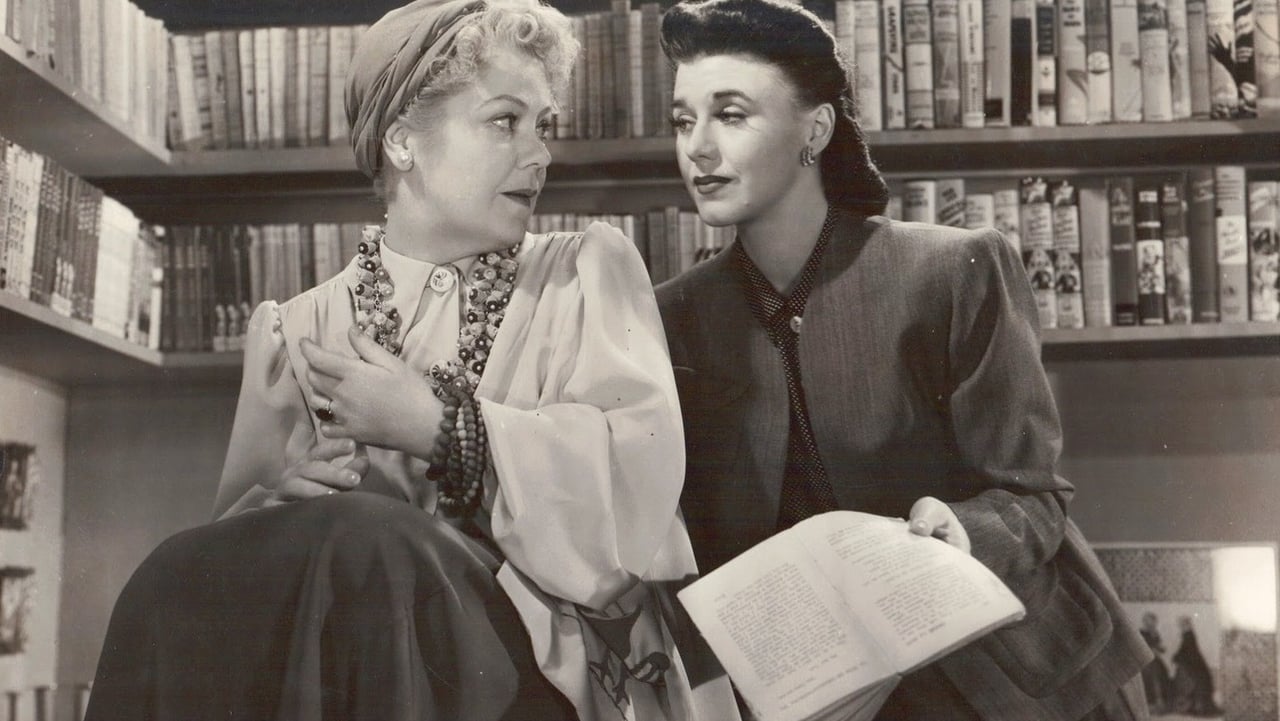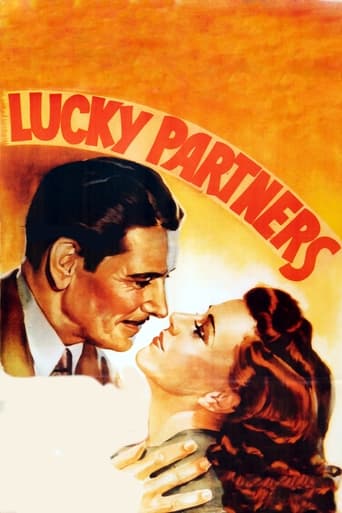Libramedi
Intense, gripping, stylish and poignant
Catangro
After playing with our expectations, this turns out to be a very different sort of film.
Rio Hayward
All of these films share one commonality, that being a kind of emotional center that humanizes a cast of monsters.
Catherina
If you're interested in the topic at hand, you should just watch it and judge yourself because the reviews have gone very biased by people that didn't even watch it and just hate (or love) the creator. I liked it, it was well written, narrated, and directed and it was about a topic that interests me.
vincentlynch-moonoi
Ronald Colman fascinates me. Perhaps more than any actor ever to grace the Hollywood sound stages (and silent-era stages), he is a truly unique actor. And, as the epitome of suaveness, with that once-in-a-lifetime voice, like Jack Nicholson and Spencer Tracey, I can enjoy a Colman film if for no other reason than to revel in his screen persona. Having said that, this is far from Colman's best film, but it is pleasant enough. Due to the era -- 1940 -- one might expect this to be a screwball comedy. Rather, it is a sophisticated comedy, so don't expect to laugh out loud...it's just not that kind of film. Ginger Rogers is also very pleasant here, and Jack Carson plays his role of jilted fiancé perfectly (he really was quite a versatile actor). Some people believe that the obvious difference in the age of Colman and Rogers makes this film improbable, yet I can imagine Hepburn and Tracy in the star roles, and that age difference wouldn't have bothered us. Spring Byington is pleasant, but in terms of the character actors who fill out the playbill, it is -- as is often the case - Harry Davenport (as the judge) that really shines here.As a Colman fan, I enjoyed this film. It's pleasant, humorous, and heartwarming. It's perfect for a night in front of the fireplace and television.
bkoganbing
Lucky Partners was the first of two films that Ronald Colman together with director Lewis Milestone signed on to make at RKO Pictures. For box office sake he was lucky to get Ginger Rogers who was their top moneymaking female star to be the leading lady. Though their styles don't quite mesh, it's a pleasant enough bit of viewing.Colman is a reclusive artist and Ginger is a bookseller in Greenwich Village of the Forties, then as now a home and haven for non-conformist spirits. Maybe in another neighborhood a story like this just couldn't happen.Just one fine day as Colman passes Rogers on the street he wishes her a casual 'good luck'. When she gets the gift of an expensive coat that someone is discarding, Ginger decides that Colman apparently has a lucky streak going. What to do, but bet on the Irish Sweepstakes and take him in as a partner. That does not sit too well with fiancée Jack Carson who is playing a typical Jack Carson blowhard type.The whole business arrangement in fact the whole business eventually winds up before Judge Harry Davenport who sorts out the legal and romantic complications for all concerned. Very much like Judge Granville Bates does in My Favorite Wife which also came from RKO the same year and is a much better film.With possibly a different director like Preston Sturges or Mitch Leisen, or Leo McCarey, someone who is known for comedy Lucky Partners might have been a better film. As it is it's pleasant enough viewing for the fans of the leading players, but that's about all you can say for it.
Equinox23
I've come around to re-watching Lucky Partners and I have to confess that I've only watched it once before.What the movie most suffers from is that there is no chemistry between Ginger Rogers and Ronald Colman,one can hardly believe that he is in love with her!The supporting roles are very fine though,the two Nicks are rather splendid and Ethel and her mother,too, and even the aunt is great.What really won me a little bit for the movie is the final courtroom scene, because by condemning the adulterous behaviour finally the risqué possibilities of the plot can be discussed and enacted.Now Colman's charm that he had to suppress throughout is definitely there,oddly mostly in those scenes when he is alone in his stand and smiling at the accusations that are uttered against him. Though this whole courtroom business is rather a spoof especially because the whole affair is ridiculously overdone,still it is a clever device to get around the censorship of the Hays code and to maybe slightly rebel against the limitations it imposes by saying what was considered immoral yesterday might be considered art or culture tomorrow. Still it is really sad to see Colman only smiling seductively in court to himself and not to Rogers in the hotel, so what is is so much less than what could have been.I'd like to disagree with the previous reviewer in so far as there is a reason given-however stupid it might be-for blowing this case up.As can be seen in the scene preceding the courtroom scene,the reason why the case is handled in such a way is the attraction it brings about and the money it draws into the city.
FISHCAKE
It was an article of faith among the more cynical critics during the "golden age" of Hollywood movies that most of what the industry turned out could be summed up as "boy meets girl, boy gets girl, boy loses girl but gets her back before the final fade". Well, here Lewis Milestone has directed just such a formula tale. But he, more famous for such films as ALL QUIET ON THE WESTERN FRONT, has handled the genre with such a light touch that the result is delightful. Mind you, I don't say the film is top 100 quality, but what's not to like about a Sacha Guitry romantic comedy featuring Ronald Colman and Ginger Rogers and ending with a courtroom scene, common to this type of film in the 1930's and 1940's, presided over by Henry Davenport as Judge?We start out with Colman as some sort of "mystery artist" accosted by Rogers with a hare-brained scheme to win the Irish sweepstakes, if only he will go halvers with her. He wished her "Good Luck" one morning, you see, and immediately she was given a lovely dress by a complete stranger. So naturally, she knew he was a sure token of good luck. She wants the money for her honeymoon, but Ronald has an idea of his own--he wants her to go with him on the honeymoon, strictly Platonic, of course. To make a long story a bit shorter, Ginger doesn't like the idea but Ronnie persuades her fiance, Jack Carson, that it's O.K. (Don't ask how!), so she finally agrees. They draw a horse on their ticket (if you don't know how the Irish Sweepstakes worked, there isn't room here to explain it all), but the horse doesn't win. However, Jack has sold one-half of the ticket for $6000 on the strength of the horse. He gives this to Ginger, who gives it to Ronnie, who arranges the trip and buys a car in Ginger's name. After considerable pussyfooting around it becomes clearer by the minute that Plato is going to lose this one. Ronnie gets cold feet and beats it in the car bought in Gingers's name. Naturally he is arrested for car theft, Ginger is arrested for possessing a stolen painting (I told you Ronnie as a "mystery artist"), Jack is arrested for breaking down Ginger's hotel room door (he got jealous after all), and they all end up in Henry Davenport's courtroom.Now, don't read another word if you don't already know the outcome, but if you are of the female persuasion and had the choice of Ronald Colman or Jack Carson, whom would you choose. This courtroom scene is not the best of this sort, which I mentioned was common to the period, but it does serve to sort things out. It may be corn, but it is lovely, sweet corn, and not from Iowa. Light sparkling comedy was Sacha Guitry's stock in trade.

